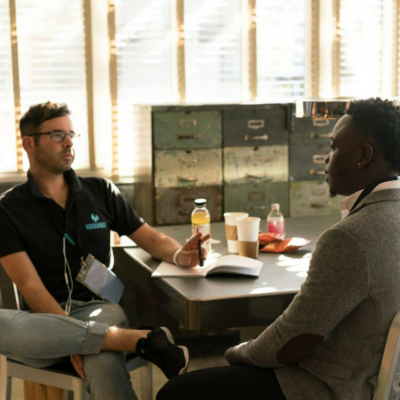Sponsors: What are they? How do I pick one?

Stepping onto the path of recovery from addiction requires courage and determination. Whether battling alcohol, drugs, or any other substance, the journey to sobriety is often filled with challenges. Within programs such as Alcoholics Anonymous (AA) and Narcotics Anonymous (NA), and other recovery programs, a sponsor can serve as a crucial companion.
Understanding the Role of a Sponsor
A sponsor is typically an individual who has achieved a significant period of sobriety and stability in their own recovery journey. They act as mentors, providing guidance, support, and accountability to those newer to the process. This relationship is built on trust, honesty, and mutual respect.
One of the primary functions of a sponsor is to offer support and encouragement during difficult times. They lend a listening ear and practical advice drawn from their own experiences navigating the challenges of addiction recovery. Moreover, sponsors serve as a source of inspiration, demonstrating that long-term sobriety is attainable through commitment and perseverance.
Additionally, sponsors play a crucial role in holding their sponsees accountable. They assist individuals in setting realistic goals, monitor progress, and intervene when necessary to prevent relapse. By sharing their own experiences and insights, sponsors provide invaluable guidance on coping strategies, avoiding triggers, and embracing a healthy lifestyle.
When do You Need a Sponsor
Knowing when you’re ready for a sponsor is a crucial step in your recovery journey. One indicator is a growing awareness of the challenges you face in maintaining sobriety and the realization that you could benefit from additional support and guidance. You might find yourself feeling overwhelmed or stuck in your recovery efforts, unable to navigate certain obstacles on your own.
Additionally, if you’ve been attending meetings regularly and actively participating in your recovery program but still find yourself struggling, it could be a sign that you’re ready for a sponsor. Feeling open and receptive to the idea of having someone to confide in, hold you accountable, and offer guidance is another indication that you’re ready to take on the responsibility of working with a sponsor. Ultimately, readiness for a sponsor is about recognizing your own limitations, acknowledging the value of mentorship and support, and being willing to take proactive steps toward furthering your recovery journey.
Choosing the Right Sponsor:
Selecting the right sponsor is a pivotal decision that can significantly impact one’s recovery journey. Here are some essential considerations for choosing a sponsor:
- Alignment with Program Principles: Seek a sponsor who embodies the principles of the program and demonstrates a strong commitment to its values. A sponsor should actively participate in meetings, engage in service work, and exemplify honesty, humility, and spiritual growth.
- Experience with the Program: Look for a sponsor with a significant period of sustained sobriety and experience working through the program’s steps. While length of sobriety isn’t the sole indicator of suitability, it often reflects a deeper understanding of the program’s principles and a willingness to share experience, strength, and hope with others.
- Compatibility: Choose a sponsor with whom you feel a strong connection and rapport. Your sponsor should be someone you trust and respect, with whom you can be open and honest about your struggles and aspirations. Compatibility fosters a supportive and constructive sponsor-sponsee relationship.
- Availability and Commitment: Ensure that your potential sponsor has the time and willingness to commit to the role. Regular communication, guidance, and support are essential aspects of the sponsor-sponsee relationship, so it’s crucial to select someone who is accessible and dedicated to supporting your recovery journey.
- Involvement in the Recovery Community: Consider a sponsor who is actively involved in the recovery community and engaged in service work. They may have connections to meetings, events, and resources that can enhance your recovery experience and provide additional support.
Ultimately, the sponsor-sponsee relationship is founded on trust, honesty, and mutual support, paving the way for a brighter, substance-free future.




